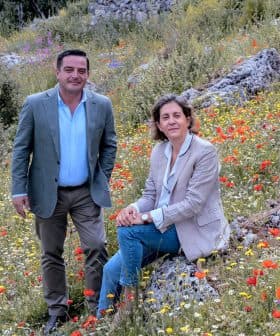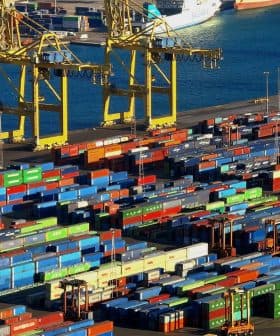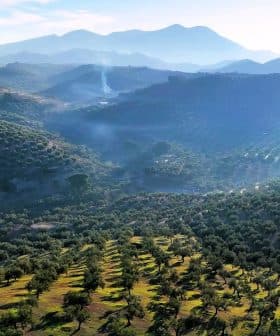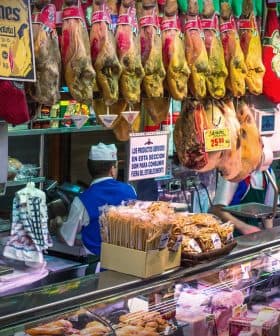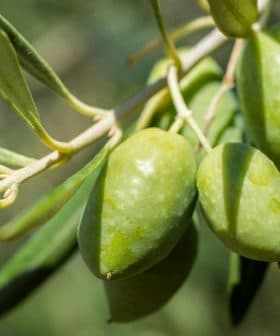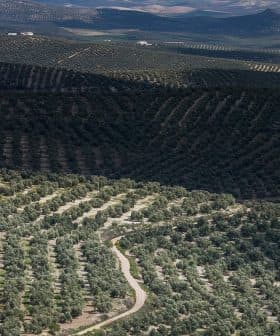Canary Islands Seek to Strengthen Emerging Olive Oil Industry
The consolidation of the olive oil industry in the Canary Islands is moving at a fast pace. The number of olive trees being cultivated has grown quickly as has olive oil production.
 The big volcano on Tenerife.
The big volcano on Tenerife. 7.4K reads
7.4K readsOlive oil production in Spain’s Canary Islands has significantly increased over the past decade, with olive grove surface area growing by 243 percent and production rising by 401 percent. The government is focusing on improving agronomic practices, promoting high-quality products, and attracting younger generations to the sector in order to enhance the competitive advantage of Canarian olive oils.
Olive oil is on the rise in Spain’s Canary Islands. Over the past decade, olive grove surface area grew by 243 percent, increasing from 254 acres in 2011 to 872 acres in 2017.
With this increase in trees has come an increase in oil production too. Over the same period, production rose from 437 tons to 2,192 tons, a 401 percent increase. Some suggest that with growth like this, olive oils from this Spanish archipelago may soon gain weight in Spain’s overall olive oil scene.
The Canary Islands are an archipelago in the Atlantic Ocean made up of several islands, of which Tenerife, Fuerteventura, Gran Canaria and Lanzarote are the largest. Approximately 75 percent of olives harvested here are pressed for olive oil.
See Also:Spanish Olive Oil ProductionA little less than one-third of the islands’ olive plantings are located on Gran Canaria, where about 250 acres of olive trees are planted. Fuerteventura, with about 200 acres, and Tenerife, with about 185, make up the top producers.
Olives are a centuries-old cultivar in the Canary Islands. However, the sector remained rather quiet for a long period until 2005, when the regional government began a pilot program at a local cooperative aimed at the production of olive oil.
The program began in Tenerife with the identification and expansion of wild centenary olive trees, which in a short period of time became highly productive and widespread, nurturing the production of olive oil. The program later expanded to other islands. By 2010, Tenerife had 40,000 olive trees and had undergone several production campaigns.
In Gran Canaria, there is an olive production tradition that dates back to the nineteenth century, but at least half of its olive trees were planted recently. In 2001, its first olive mill was inaugurated. Now, there are about 10 olive oil producers on the island.
Olive cultivation has also expanded greatly in Fuerteventura. The island has a mill in the experimental farm of Pozo Negro, which is used by local producers to press their olives. Olivafuer is a large association of local oil producers on the island.
In October 2018, the island of El Hierro inaugurated its first public olive mill, a state-of-the-art facility that benefits all growers.
Olive varieties planted in the Canary Islands mostly include Arbequina, Hojiblanca and Picual. To a lesser extent Gordal, Manzanilla and Cornicabra are also planted. However, it is Verdial Canaria, a local variety, which is the most attractive for olive oil producers because of its distinct personality, seasoned with the special organoleptic traits conferred to it by the islands’ volcanic soils.
Since production volumes are still lower than in other regions, the Canary Islands put emphasis on the quality and distinctiveness of their oils to build the sector’s competitive advantage.
To this end, the government has been conducting training sessions for olive growers, and courses about olive cultivation and oil appreciation, especially among the younger generations whom the government wants to attract to the sector.
The government is also working on the improvement of agronomic practices, recuperation of the traditional olive groves, promotion of new plantings, stimulation of cooperatives and joint actions as well as the development of marketing efforts that pursue a high-quality product. Industry meetings are also convened for producers from the various islands to exchange experiences about the sector.
Tegurey, Palmaoliva, Hacienda Jiménez Tres Olivos, Legado de Abona and Agroturismo La Gayria are some of the brands of Canarian olive oils. Finca Noel is one of the islands’ ecological oil producers. Canarian extra virgin olive oils have fruity aromas, smooth flavors, great balance, and harmony between spiciness and bitterness.
The first edition of the islands’ annual extra virgin olive oil competition was held in 2016. This contest seeks to highlight the quality of the oils, support their promotion and improve their sales. Twenty olive oils from three main producing islands participated in the 2019 competition, which was held in January.
Tourism has been a driving force for the olive oils of the Canary Islands, which are also discussing the path toward the creation of a quality designation of origin for its product.
To promote its olive oils, the Canary Islands actively participate in tourism and food fairs held both in Spain and abroad. The islands seek to increase the presence of the award-wining oils in hotels and restaurants, using tourism as a promotional platform.



